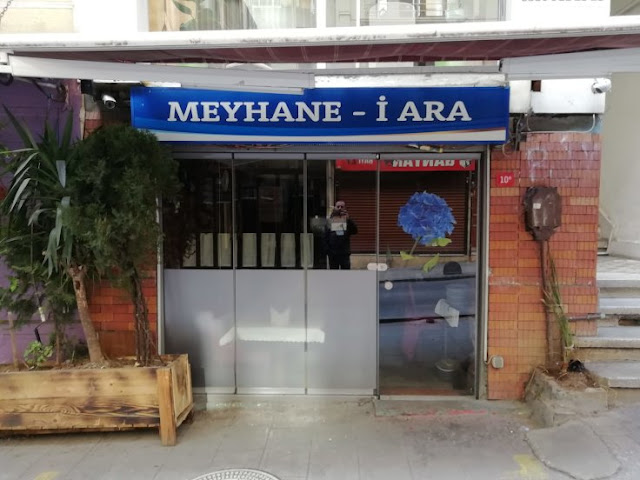Notes on Life, no. 1
March 17
Where even to begin writing? I'm in the process of transitioning my undergraduate lecture course - 138 students - online. Part of the process involves rethinking what exactly I'm going to assign them - how does our work need to change now that all classes have gone remote? How could it? How should it?
One of the things I'm planning to ask them to do is to begin keeping a journal - at least weekly, although they're welcome to write more frequently. So what I'll be doing over the next period is trying to model that here. What sorts of things should they write about? What might looking at everything 'geographically' provide?
Lots of things in the news, of course. Too much so. One of the tensions (frustrations?) of this experience for me is this: On the one hand, we live in a world in which news media and social media platform make possible a sort of instantaneous commentary; and on the other hand, the actual scope of this pandemic is going to be playing out over weeks, months, years, even decades. So there's particular mismatch between the speed at which I'm gaining information and the speed at which I (we?) might able to affect change.
News from Istanbul - Hacı Bişkin writes of 'ghost streets' in Istanbul in Gazete Duvar ["İstanbul 'kilit'lendi, esnaf ne yapacağını bilmiyor," Gazete Duvar, March 17, 2020.]
He speaks with the taxi drivers left without work by the empty streets:
Sometimes, I'm afraid, an empty street makes visible truths we'd (I'd) rather ignore.
Where even to begin writing? I'm in the process of transitioning my undergraduate lecture course - 138 students - online. Part of the process involves rethinking what exactly I'm going to assign them - how does our work need to change now that all classes have gone remote? How could it? How should it?
One of the things I'm planning to ask them to do is to begin keeping a journal - at least weekly, although they're welcome to write more frequently. So what I'll be doing over the next period is trying to model that here. What sorts of things should they write about? What might looking at everything 'geographically' provide?
Lots of things in the news, of course. Too much so. One of the tensions (frustrations?) of this experience for me is this: On the one hand, we live in a world in which news media and social media platform make possible a sort of instantaneous commentary; and on the other hand, the actual scope of this pandemic is going to be playing out over weeks, months, years, even decades. So there's particular mismatch between the speed at which I'm gaining information and the speed at which I (we?) might able to affect change.
News from Istanbul - Hacı Bişkin writes of 'ghost streets' in Istanbul in Gazete Duvar ["İstanbul 'kilit'lendi, esnaf ne yapacağını bilmiyor," Gazete Duvar, March 17, 2020.]
 |
| Photograph copied from Hacı Bişkin's article in Gazete Duvar. |
We speak with the taxi drivers when we can't find anyone to speak with on the street. They're struggling to bring bread into their homes [i.e., to make a living]... 'The virus has hit us the most,' one taxi driver says: 'Nothing'll happen to those with money. We'll get burned. Those who own the placards [of the taxis] are very cruel. Whatever happens, they're after money. Those who rent the taxis have to pay this money [in rent]. On normal days a taxi might make 1,000 lira. Because of the corona virus, you don't even make enough to eat. Yesterday I barely pulled 150 lira. Today is worse. I haven't even done the first sale of the day. Those who own the cars should lower the price of the rental as an emergency measure [acil bir şekilde]. Otherwise the taxi drivers are going to end up unemployed. We've got to bring bread home. [Translation is mine.]He closes with a heartbreaking photo of one left without a home, one of Istanbul's street dogs curled up nearby: "Istanbullu have been shut up in their homes. But those without a home continue to live on the streets."
Sometimes, I'm afraid, an empty street makes visible truths we'd (I'd) rather ignore.
Comments